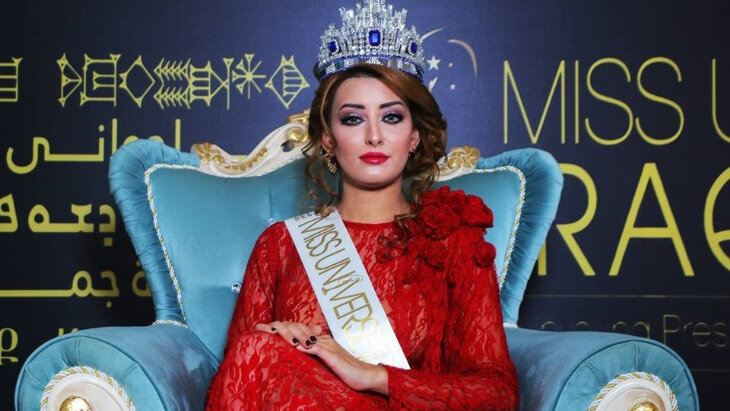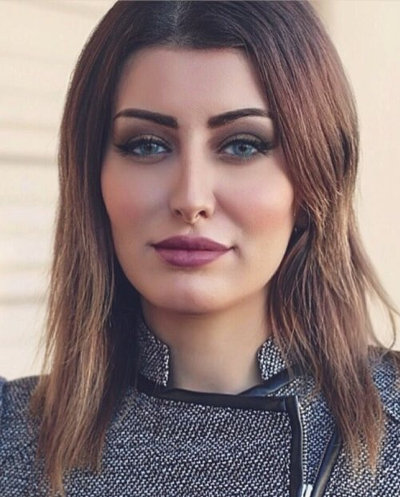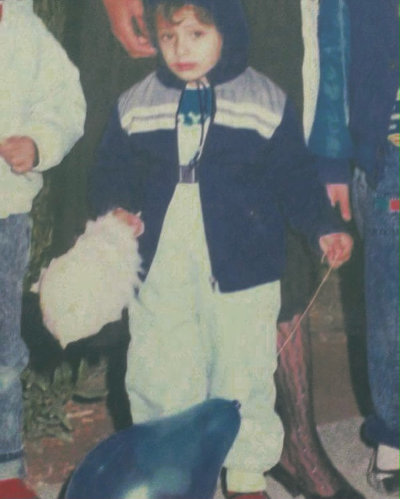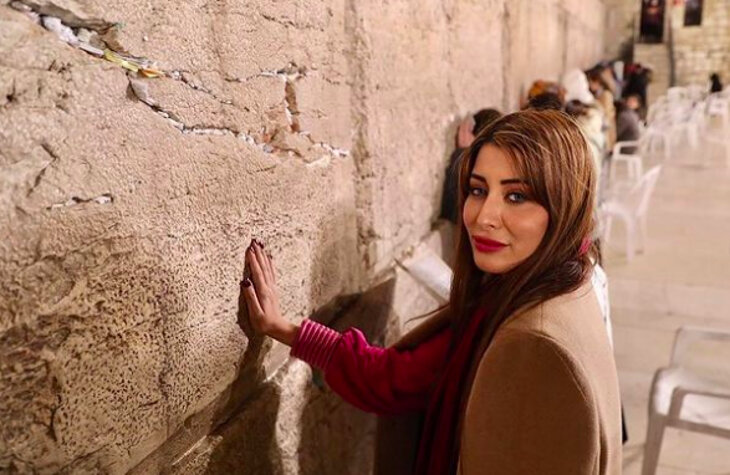 Vampire Weekend's Surprising Jewish Stories
Vampire Weekend's Surprising Jewish Stories


6 min read
Posing with Miss Israel was the start of Miss Iraq's advocacy for the Jewish State
When Sarah Idan won the title of Miss Iraq in 2017, she posed for a picture with Adar Gandelsman, Miss Israel, at the Miss Universe Pageant. Idan posted the picture on her Instagram and wrote, “Peace and love from Miss Iraq and Miss Israel.”
“I didn’t think it would be a big deal,” Idan said.
But it was. The response from some fellow Iraqis was swift and harsh.
“People said I was committing treason,” Idan said in an exclusive interview with Aish.com. “They said we didn’t have any relations with Israel because of the occupation in Palestine. I thought it was all Saddam Hussein and that mentality died with him, but apparently it didn’t.”
 Adar Gandelsman, Miss Israel, with Sarah Idan Miss Iraq.
Adar Gandelsman, Miss Israel, with Sarah Idan Miss Iraq.
The situation escalated: Idan started receiving death threats. And in the aftermath, her family still living in Iraq was forced to flee.
“I spoke too early for an Arab,” she said. “We didn’t have the Abraham Accords yet. I didn’t really know what was going on in the Middle East because I was in the United States.”
Idan, who was born in 1990, grew up during Saddam Hussein’s dictatorship in Iraq.
“It was like North Korea,” she said. “We were cut off from the world. There were only three channels on our TV, and the government controlled them. Everything told to us came from Saddam. We didn’t know what was going on. We were living in a bubble.”
Whenever Saddam decided to bomb another country, that country would bomb Iraq in retaliation, which was incredibly traumatic for Idan.
“Since I was a child, I didn’t know what was happening,” she said. “The minute I turned 13, I was expected to become a Ba'ath Party member and pledge allegiance to Saddam. We didn’t have freedom of expression.”
If anyone talked about how they hated Saddam, or even made a joke about him, they could be sent to jail – or worse. You could have faced execution. And he didn’t target one person. If a child or one person from a family did something, he would go after the entire family because he thought they might seek revenge. People had to be really careful.”

When the U.S. invaded Iraq in 2003, things only became more difficult.
“You can imagine the chaos when the police, the government, and the military weren’t operating,” Idan said. “There was looting. We had all these people coming from Afghanistan and Pakistan. Extremist Muslims came to fight in Iraq. They thought they were there to fight the American occupation, but really, they just wanted to hold power in Iraq. Citizens like us had to pay the price.”
At one point, there was a civil war between the Sunnis and the Shias, and the people of Iraq were caught in the middle. Idan’s family were Sunni and living in a Shia-occupied neighborhood.
“We were one of the lucky families,” she said. “Many families were slaughtered in their homes. The militias knew we were not political and we had no agenda.”
Their luck wouldn’t last long.
“The militia gave us a warning letter with a bullet. They told us to leave, or else. That’s when we left and became refugees in Syria for three years. During that time, a strange family came and took our home.”
Eventually, the Idans were able to return in 2008, but their country had radically changed by that time.
“I hated everything there,” Idan said. “All of a sudden, Iraq was really Islamist, which we never were. The women had to wear hijabs. You’d see a 14-year-old boy carrying a rifle and yelling at you because a little bit of your hair was showing.”
Idan knew she had to get out, so she devised a plan. There was an ad in the newspaper to work as a translator for the U.S. military. After one year, you could apply for a green card and eventually become a U.S. citizen.
The job was perfect for Idan, who had learned how to speak English when the invasion happened. For the first time, she had access to U.S. television since the military had given Iraq satellites. She would watch “Friends” and “Frasier” and fell in love with American music.
 Sarah Idan as a child
Sarah Idan as a child
“I had a cassette tape and a broken tape recorder,” she said. “I would hear a lyric from a song, write it in Arabic, and try to spell it in English. This was how I taught myself English.”
Aside from the chance to escape from Iraq, Idan wanted to go to America because she had positive experiences with the soldiers in her country.
“Saddam taught us that Americans hated us and wanted to kill us,” she said. “When I met U.S. soldiers, they were so sweet. They gave us flowers and candies and put up a little amusement park for us. I thought, ‘Everything I’ve been taught is a lie.’”
In 2009, Idan came to the U.S. to study music, and today, she lives in Los Angeles.
For the past few years, she’s been vocal on Twitter and Instagram, posting about her support of the Jewish people and Israel. She’s also visited Israel, which changed her perspective on the country.
“I was completely shocked when I got there,” she said. “From what I heard, Israel was a Jewish supremacy state and they didn’t like Muslims or Arabs. I thought everyone there was Jewish.”
But when she got to her hotel, the bellboy was named Mustafa. Another man working there was named Mohammed. She asked them if they were Arabs and they said they were.
 Sarah Idan at the Western Wall
Sarah Idan at the Western Wall
She had breakfast with Mohammed and he talked about his life in Israel.
“He said Arabs live here and have a wonderful life,” she said. “He said the main problem was Hamas.”
While Idan was there, she went to Haifa and Jaffa and saw beautiful mosques. She ate at Machane Yehuda, met Bibi Netanyahu, saw the Western Wall, toured Yad Vashem, and, during Ramadan, saw signs in Hebrew and Arabic congratulating Muslims on finishing the holiday.
“It reminded me of a mini United States in the Middle East,” she said. “I’ve been to Syria, Egypt, and the Emirates, and I had never seen Jews, Muslims, and Christians living together like this. It was beautiful. It made me love Israel.”
Now, Idan has an organization called Humanity Forward, which aims to provide education to Jews and Muslims and bring them together. The tagline is, “Bringing salaam and shalom to people everywhere.”
Through Humanity Forward, as well as social media, Idan strives to cultivate peace among people and show that living together in harmony – despite our differences – is possible.
“My ultimate goal is to make a difference in this world,” she said. “I want to bring as many people as possible together to learn. Then, they will change their misconceptions.”
